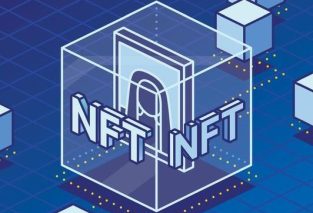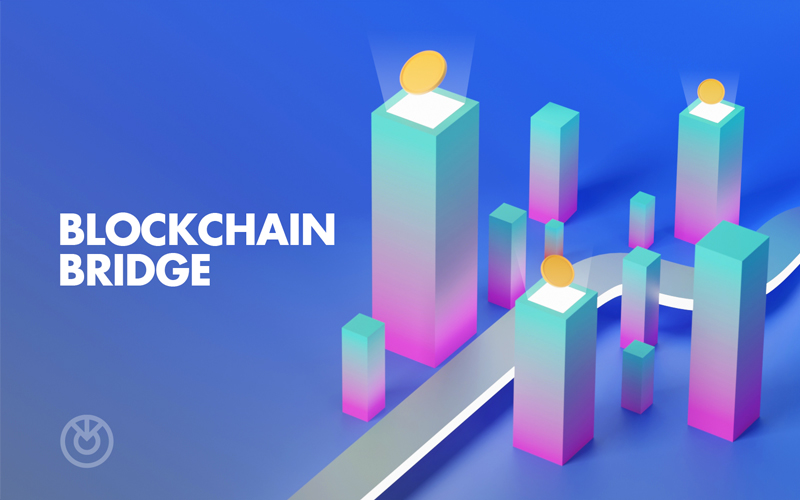DEX Aggregators also known as Liquidity Aggregators, the latest DeFi innovation, have gained widespread traction among traders. They have offered improved access to liquidity and pricing, making them the preferred choice in the cryptocurrency market.
Key Terms:
Aggregate meaning
The term “Aggregating” means putting different things together to create a unified whole. It involves gathering individual data and merging them into a larger unit.
What is DeFi?
DeFi, or Decentralized Finance, challenges traditional financial models by offering diverse services without intermediaries, using smart contracts on blockchains. It provides users with transparency, security, and autonomy in managing their assets globally. With reduced risks and increased accessibility, DeFi’s decentralized ecosystem holds immense potential to reshape the future of finance.
What is a DEX?
A DEX (decentralized exchange), is a cryptocurrency exchange that functions on a decentralized platform, avoiding the need for a centralized authority to facilitate transactions. Instead, it utilizes blockchain features like smart contracts and AMM (Automated market makers) algorithms to enable direct trading of digital assets.
What are Smart contracts?
Smart contracts are digital agreements written in code. They automatically execute the terms agreed upon by the buyer and seller. These contracts enable secure transactions between unknown parties without requiring a central authority or legal system to enforce them.
What is a Hackathon?
A hackathon, also called a codefest, is a social coding event where programmers and others come together.
Now that you know all the required keywords, Let’s get into some details.
The Rise of DEX Aggregators
The First DEX Aggregator was made by Sergej Kunz and Anton Bukov in 2019 as a part of a Hackathon competition. Back then, the majority of participants recognized the importance of aggregated information from discrete decentralized exchanges. This realization marked the onset of the DEX aggregator time, which has continuously grown ever since.
CEX VS DEX
Their main difference lies in their underlying architecture and operational principles.
CEXs are traditional exchanges that rely on a central authority to support transactions, acting as intermediaries between buyers and sellers. Users typically deposit their funds onto the exchange, and the exchange holds custody of the assets during trading.
Alternatively, DEXs operate on a decentralized platform, leveraging smart contracts and blockchain technology. They speed up direct peer-to-peer trading, exclude the need for a central authority, and give users control over their private keys and funds. DEXs often offer more privacy since users don’t need to provide personal information for trading.
To learn more about Private keys and Wallets, read this article.
What is a DEX Aggregator?
A DEX, (Decentralized Exchange) is a blockchain-based platform that ensures enhanced security. However, one of the primary challenges faced by these exchanges is the limited liquidity and pricing options for less-known tokens.
DEX Aggregators, also known as Liquidity Aggregators, have been developed to address this issue. These financial protocols allow traders and investors to access multiple trading pools through a single dashboard. Utilizing advanced algorithms, DEX aggregators carefully consider various factors to identify the most suitable provider for a particular token swap across the available platforms.
Fundamentally, DEX aggregators simplify the process and improve accessibility for traders and investors in the decentralized exchange ecosystem. By streamlining the trading process, DEX aggregators offer the best possible value for swaps, eliminating the need for manual checks across multiple DEXs, which can be time-consuming and inefficient. The primary role of a liquidity aggregator is to swiftly identify the best prices available on other DEXs. Additionally, it aims to shield users from price impact and reduces the chances of failed transactions. Due to the impracticality of manual checks, DEX aggregation has become a highly successful business model with significant growth in recent times.
With the rising popularity of DEXs, where tokens can be exchanged directly without intermediaries, it is not surprising to experience a sharp increase in the number of projects launching their own DEXs soon. However, for most retail investors, choosing a trustworthy project among many can be challenging.
DEX VS DEX Aggregator
Decentralized Exchanges (DEXs)
- Blockchain-based platforms for direct peer-to-peer trading of cryptocurrencies.
- No intermediaries are involved.
- Enable wallet-to-wallet transactions.
- Limited liquidity for certain tokens.
- can result in lower trading volume and less favorable token swap rates.
DEX Aggregators
- Platforms built on top of existing DEXs.
- Act as intermediaries.
- Gather liquidity from multiple DEXs.
- Offer a unified pool of liquidity to users.
- Facilitate access to larger liquidity.
- Increase chances of finding suitable trading pairs.
DEX Aggregator Advantages:
- Enhances Liquidity: For instance, if you encounter a situation where you wish to convert your ETH tokens into USDT on a particular DEX, but face limited liquidity on that platform, a DEX aggregator comes to the rescue. By using the aggregator, you can successfully liquidate and exit your position without encountering significant differences.
- Saves Time and Effort: With thousands of tokens available in the market, DEX aggregators simplify the research process required by traders by consolidating it, whether it’s in real-time or otherwise.
- Better Pricing: In contrast to a single individual DEX, a DEX aggregator offers enhanced execution prices, as its design focuses on assisting traders in achieving higher liquidation rates.
- Anonymity: DEX aggregators, being an innovation integrated with DEXs, allow users to provide minimal personal information, unlike centralized exchanges that require full KYC (Know Your Customer) documentation before registration.
- Decentralization: Similar to DEXs, DEX aggregators provide users with control over their funds, unlike centralized exchanges. They empower users to directly trade from and to their crypto wallets.
- Robust Infrastructure: DEX aggregators are dependent on ‘open-source’ platforms, promoting transparency by avoiding reliance on a single source system. Instead, they utilize a community-based system built on a blockchain, thereby enhancing cybersecurity. In addition, The Open Network (TON) is a fine example of open-sourceness.
To learn more about TON and TONCoin (The Open Network’s Native Currency), check these articles out.
Known DEX Aggregators:
Pros:
- Support for newer tokens.
- Enables true peer-to-peer trading with different stablecoins supported.
- High liquidity and pool activity.
- Secure platform due to its decentralized nature.
- Supports multiple wallets for convenience.
- Allows users to peer-trade or swap cryptocurrencies among themselves.
- Cryptocurrency prices are derived from real-time on-chain buy/sell transactions from liquidity pools.
- Provides access to multiple decentralized protocols on Ethereum, BSC, Polygon, Avalanche, Fantom, and Arbitrum blockchains.
Cons:
- Does not support buying and selling crypto with or for USD and other national currencies.
dYdX:
Pros:
- Capitalizes on derivatives trading of up to 37 cryptocurrencies.
- Utilizes advanced order types for enhanced trading options.
- Allows users to trade perpetual futures with up to 20x leverage.
- Highly safe exchange due to its decentralized nature.
- Offers no-fee trading for users with substantial 30-day trading volume.
Cons:
- No support for fiat-crypto trading.
- Supports fewer tokens compared to other exchanges.
Pros:
- Huge market capitalization.
- Provides a secured network for crypto investing and trading.
- Offers governing rights to participants.
- Renowned platform for investors, liquidity providers, and developers.
- Enables seamless crypto investing and trading through smart contracts.
- Serves as an automated market maker (AMM).
- Facilitates engagement between various participants in the crypto ecosystem.
Cons:
- Poses the risk of liquidity loss.
- No KYC (Know Your Customer) process.
Pros:
- Presents an appealing and user-friendly interface.
- Offers diversified services, including trading, staking, and lottery participation.
- Charges low transactional costs for trading and other activities.
- Platform for trading various cryptocurrencies and crypto futures with up to 100x leverage.
- Enables users to earn rewards through cryptocurrency staking and lottery participation.
- Provides opportunities to win BNB by successfully predicting the price trend of BTC.
Cons:
- Works only on the web, limiting accessibility on other platforms.
- Not compatible with BTC, which may restrict users who primarily deal with Bitcoin.
Staking is, Holding crypto assets in a cryptocurrency wallet or a specific platform in order to earn money in reward and to help support a blockchain.
To learn more about staking, read this article.
Overall, DEX aggregators have proven to be a game-changer in the DeFi landscape, offering a more user-friendly, efficient, and accessible trading experience for both seasoned and novice traders alike.




